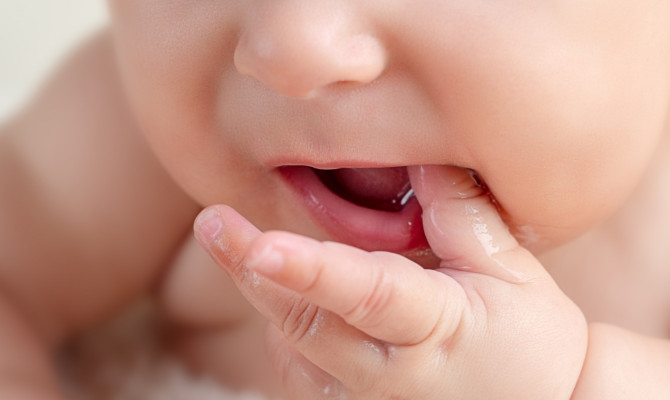Infant health : A General Overview

- Infant Health
- 16 Aug 2023
Overview
Infant or Baby
Up until they are roughly a year old, your child is referred to as a baby or infant. For a child’s general well-being and growth in the future, their health is essential. This time’s good health lays a healthy life’s foundation.
This post will review the numerous techniques to ensure the child is healthy.1Overview| Researched based study from Nlm.nih.gov

Importance
Importance of infant’s health
Developmental stage
- A child’s physical, cognitive, and emotional development depends heavily on the first few years of life. This is the time to lay the foundation for a long, healthy life.2Importance| Researched based study from Nhs.uk
Preventing disease
- They are more prone to infections and diseases since their immune systems are still developing. Parents may reduce the likelihood of their kids having major problems by encouraging healthy habits like immunizations and essential cleanliness.
Long-term health
- A child’s health may be affected for a long time by concerns with infant health. For instance, premature delivery might raise a child’s chance of developmental delays and long-term health issues.
Impacts on the Economy
- Parental productivity loss and higher healthcare expenses are two consequences of poor health. It might interfere with a child’s ability to learn and make constructive contributions to society as they age.
Emotional stability
- When healthy kids are more likely to connect with their caretakers positively and have positive interactions, promoting healthy social-emotional development.2Importance| Researched based study from Nhs.uk
Factors
Factors that affect the health of infants
Genetics
- Their genetic composition significantly influences the health and development of a newborn. Genetic factors may make certain diseases or conditions more likely to develop.
Prenatal care
- A successful pregnancy and birth may be ensured with adequate prenatal care, which includes routine checkups and monitoring.
Maternal health
- The mother’s health can affect the baby’s health during pregnancy. Maternal difficulties and fetal development can both be impacted by maternal health issues.
External factors
- Environmental pollution, exposure to poisons, and dangerous living situations may impact one’s health.
Nutrition
- Healthy growth and development during pregnancy and infancy depend on adequate nutrition.
Immunizations
- Immunizations can offer defense against dangerous and perhaps fatal infections.
Parental conduct
- Poor habits include smoking, doing drugs, and sleeping inadequately.
Socioeconomic status
- Due to a lack of access to healthcare, wholesome food, and safe housing, newborns from low-income families may suffer increased health risks.1Factors| Researched based study from Nlm.nih.gov
Early birth
- When a baby is delivered earlier than 37 weeks of pregnancy, the term “early birth” is used. The infant may experience several health issues as a result.1Factors| Researched based study from Nlm.nih.gov
Risk
What causes a risk to infant health?
- Previous premature birth
- Multiple pregnancies, such as twins or triplets
- Pregnancy-related infections
- Chronic medical issues like diabetes or high blood pressure.
- Smoking or doing drugs when pregnant
- Short period between pregnancies.
- Before pregnancy, poor nutrition or a low body mass index (BMI).
- Stressful everyday events such as domestic violence or financial difficulty.
- Such as in vitro fertilization, which is a form of assisted reproduction.3Risk| Researched based study from Nlm.nih.gov
Preterm birth
Preterm birth and infant health
Preterm birth is an important factor to consider; it may cause the following complications:
Syndrome of respiratory distress
- Their lungs cannot be fully formed, which can cause RDS. Breathing becomes challenging due to this condition, which may call for more oxygen or ventilator support.
Intraventricular bleeding
- They are vulnerable to brain hemorrhage because of their thin blood vessels. Brain injury and long-term developmental issues may result.
Sepsis
- Due to their weakened immune systems, they are more susceptible to infections that can be fatal.
Enterocolitis with necrosis.
- This potentially fatal digestive disorder can happen. It can be deadly and damages and inflames the gut.
Developmental delays
- Due to their early birth, they could have physical, cognitive, and social-emotional development difficulties.
Cerebellar palsy
- It raises the possibility of developing cerebral palsy, a neurological condition that impairs balance and coordination.3Preterm birth| Researched based study from Nlm.nih.gov
How to prevent preterm birth?
- Regular prenatal care-Identifying and controlling possible risk factors for preterm birth might be aided by routine checkups.
- Avoid using drugs and smoking-Pregnant women should avoid smoking and drug use as they raise the risk of premature delivery.
- Keep up a fit lifestyle-A good diet, regular exercise, and stress management can all help lower the risk.
- Avoid using particular procedures-Specific treatments, such as cervical cerclage or progesterone supplementation, may be advised for women at a high risk of giving birth prematurely.
- Avoid elective deliveries-Women should avoid elective deliveries (induced labor or c-point) before 39 weeks of gestation unless there is a medical necessity.3Preterm birth| Researched based study from Nlm.nih.gov
Chronic disease
Managing chronic diseases in infants
While chronic illnesses are frequently thought to affect adults, they can also affect infants. Here are some ailments that affect babies often, how to treat them, and the value of routine checkups and follow-up care.
Congenital cardiac disease in children
- This is speaking of cardiac anatomical issues that exist from birth. To treat their illness, infants may need surgery or medication.
Asthma
- Chronic asthma can lead to wheezing, coughing, and breathing difficulties. Infants may require medicine to treat their symptoms and condition.
Cystic fibrosis
- It is a hereditary disorder that has lung and digestive system effects. You might need to get specialized treatment and take medicine to manage them.
Diabetes
- It is a disorder where the body struggles to control blood sugar levels. They might need to take insulin or other medicines.
Acute myeloid leukemia
- It is a red blood cell disorder that is hereditary. Blood transfusions and medicines may be necessary for managing the illness in infants with sickle cell disease.9Chronic disease| Researched based study from Nlm.nih.gov
Smoking
Ill-effects of smoking on infant’s health
Smoking when pregnant might have harmful effects. The fetus’s health and development may be affected by a number of factors, including the following:
- Increases the likelihood that kids may be born underweight, which can lead to a number of health problems.
- Raises the possibility of a preterm birth.
- Infant sudden death syndrome
- Smoking during pregnancy raises the chance that the unborn child may have breathing problems including asthma and bronchitis.4Smoking| Researched based study from Nhs.uk
Pregnancy
Pregnancy and infant health
An infant born to a healthy mother will also be healthy. To keep your pregnancy healthy, try the following:
Pregnancy-friendly environment and diet
The development depends on maintaining healthy food and atmosphere. The significance of eating healthfully when pregnant includes:
- Delivers essential nutrients
- Lessens the chance of difficulties
- Encourages healthy weight gain.8Pregnanacy| Researched based study from Cdc.gov
What kind of foods a pregnant lady should eat?
- Fruits and vegetables-These offer vital fiber, vitamins, and minerals crucial for growth.
- Protein-Protein sources include lean meats, poultry, fish, beans, and lentils.
- Calcium-It comes from milk, yogurt, and cheese and is necessary for the fetus to have strong bones and teeth.
- Iron-The fetus’s ability to produce red blood cells depends on it.8Pregnanacy| Researched based study from Cdc.gov
Environmental considerations
- Exposure to pollution and toxins-Harmful chemical exposure can have negative consequences on development.
- Good air quality-Complications are more likely to occur when the air quality index is low.
- Keeping toxic substances at bay-Pregnant women should avoid drugs, alcohol, and cigarette use.
- Babies’ surroundings at home-Establishing a secure sleeping environment for babies They must be put to sleep in a cot or bassinet that complies with safety regulations on their backs.
- Regular maintenance and cleaning-As a result, there is less chance of exposure to dangerous substances, which can contribute to a healthy home environment. Utilizing organic cleaning supplies and avoiding lead-based paint can both be beneficial.6Pregnancy| Researched based study from Nlm.nih.gov
Breastfeeding
Breastfeeding and infant health
- Breastmilk contains all the necessary elements and offers excellent nourishment.
- It contains antibodies that aid in preventing diseases and infections.
- Associated with improved physical and cognitive development.5Breastfeeding| Researched based study from Nlm.nih.gov
Oral health
Importance of oral health on infant health
- Developing good habits
- Good dental hygiene may be maintained throughout maturity.
- Preventing decay
- Pain, infection, and tooth loss are all consequences of tooth decay.
- Enhancing general health
- Overall health and oral health are related.7Oral health| Researched based study from Nlm.nih.gov
Techniques for fostering proper oral hygiene
- Even before their baby’s teeth sprout, parents should start brushing their baby’s gums with a soft or infant toothbrush.
- Fluoride is a mineral found in toothpaste and drinking water that helps fight tooth decay.
- Instead of giving them sugary beverages and meals, you should offer them milk or water.
- Children should begin attending the dentist on a regular basis by the time they turn one.7Oral health| Researched based study from Nlm.nih.gov
Takeaway
Key Takeaways
- In general, a baby’s health is vital for everyone’s well-being. There are various actions that parents and caretakers may do to preserve and boost their health.
- You may guarantee that your child has a good start in life and lay the groundwork for long-term health by adopting preventive measures.
Any feedback on this article?
 This Articles content was accurate
This Articles content was accurate Very Informative Article
Very Informative Article I have a question or a comment
I have a question or a comment
 This article contains inaccurate content
This article contains inaccurate content This article was not helpful
This article was not helpful I have a question or a comment
I have a question or a comment
We appreciate your helpful feedback!
Checkout our social pages
References
-
National Library of Medicine
Influences on Children’s Health | Overview | Factors
-
National Health Service
Your baby's health and development reviews | Importance
-
National Library of Medicine
Preterm Labor | Risk
-
National Health Service
Smoking and Infant Health
-
National Library of Medicine
Breastfeeding and Infant Health
-
National Library of Medicine
Child safety from the perspective of essential needs | Pregnancy
-
National Library of Medicine
Infant Oral Health | Oral health
-
Centers for Disease Control and Prevention
During Pregnancy | Pregnancy
-
National Library of Medicine
Chronic Disease Management in Children Based on the Five Domains of Health | Chronic disease


































